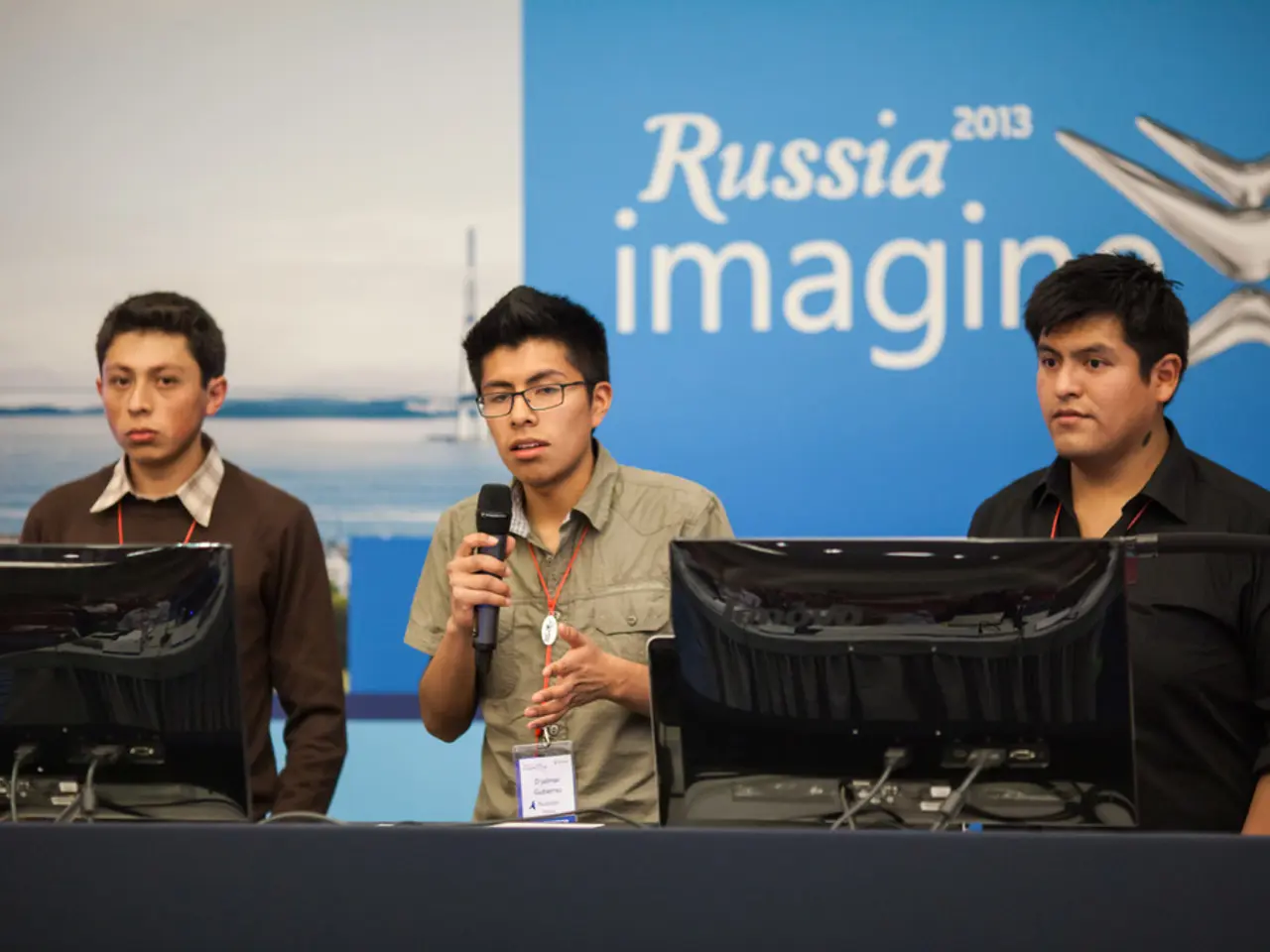Secure employment options resistant to AI, as of present conditions
In an era where automation and artificial intelligence (AI) are rapidly advancing, certain jobs remain less likely to be affected by these technologies. These roles typically require human dexterity, empathy, contextual judgment, and manual or specialized physical tasks.
Healthcare Professionals
The healthcare sector, in particular, is home to a number of jobs that are less likely to be automated. Pediatric surgeons, for example, perform delicate operations on infants and children, requiring specialized knowledge, dexterity, and communication with worried parents. Similarly, dermatologists diagnose and treat skin conditions, requiring human insight for final diagnosis and treatment plans.
First-line supervisors of firefighting and prevention workers, firefighters, and emergency management directors also find themselves in this category. Each fire scene is unique, requiring responders to assess risks, coordinate teams, and make quick decisions.
Artisans and Specialists
Manual trades and jobs involving specialized physical or environmental skills also show low AI applicability scores. Carpenters, for instance, assemble structures on-site, adapting to irregularities, and delivering bespoke finishes. Similarly, plumbers, pipefitters, and steamfitters install and repair pipes, demanding manual dexterity, adaptability to unique building layouts, and on-the-spot problem-solving.
Wind-turbine technicians, solar photovoltaic installers, and sheet metal workers also fall into this category. These roles require climbing towers, diagnosing mechanical issues, and adjusting blades or fitting pieces into specific shapes, tasks unsuitable for robots.
Creative and Educational Roles
Jobs requiring human empathy, social interaction, or complex contextual judgment are also less likely to be automated. Directors of religious activities and education, for example, organize worship services, religious education, and community outreach, demanding cultural understanding, empathy, and leadership.
Recreational therapists use leisure activities to improve clients' physical and emotional well-being, tailoring programs to individual preferences, monitoring progress, and adjusting activities accordingly. Preventive medicine physicians focus on disease prevention, public health, and wellness education, requiring human judgement in engaging communities and adapting plans based on cultural factors.
Technical and Managerial Roles
Technical roles, such as cybersecurity professionals, AI ethicists, and trainers, also require human creativity, ethical judgement, and oversight, making them less automatable. Similarly, chief executives set organizational strategy, make high-stakes decisions, and communicate with stakeholders, requiring vision, negotiation, and emotional intelligence, attributes that AI lacks.
In the field of architecture, designers create functional and aesthetically pleasing indoor spaces, consulting clients, selecting materials, and coordinating contractors, requiring human creativity and interpersonal communication. Landscape architects design outdoor environments, balancing ecology, aesthetics, and human use, considering local climates, native plants, and community needs, requiring creative vision and collaboration with stakeholders.
Conclusion
While AI continues to advance rapidly, these categories reflect the current frontier beyond immediate automation capabilities. As we move forward, it's clear that jobs requiring human dexterity, empathy, contextual judgement, and manual or specialized physical tasks will remain a crucial part of our workforce.
- Despite the growth of artificial intelligence (AI), healthcare professionals such as pediatric surgeons and dermatologists continue to require specialized knowledge, human insight, and communication skills.
- Jobs in the field of firefighting, like firefighters and emergency management directors, are less likely to be automated due to their need for quick decisions, risk assessment, and team coordination.
- Manual trades, such as carpentry and plumbing, demand manual dexterity, adaptability, and problem-solving skills, making them resistant to automation.
- Wind-turbine technicians, solar photovoltaic installers, and sheet metal workers also find their jobs less automatable due to tasks like climbing towers, diagnosing mechanical issues, and custom fitting parts.
- Jobs requiring human empathy, social interaction, or complex contextual judgment are less susceptible to automation, including roles such as recreational therapists, preventive medicine physicians, and directors of religious activities and education.
- Technical roles, like cybersecurity professionals and AI ethicists, require human creativity, ethical judgement, and oversight, making them less automatable.
- Chief executives, architects, and landscape architects also find their roles resistant to automation, as they require vision, negotiation, emotional intelligence, and interpersonal communication skills.
- As we continue to advance in technology and AI, jobs requiring human dexterity, empathy, contextual judgement, and manual or specialized physical tasks will remain integral to our workforce.




